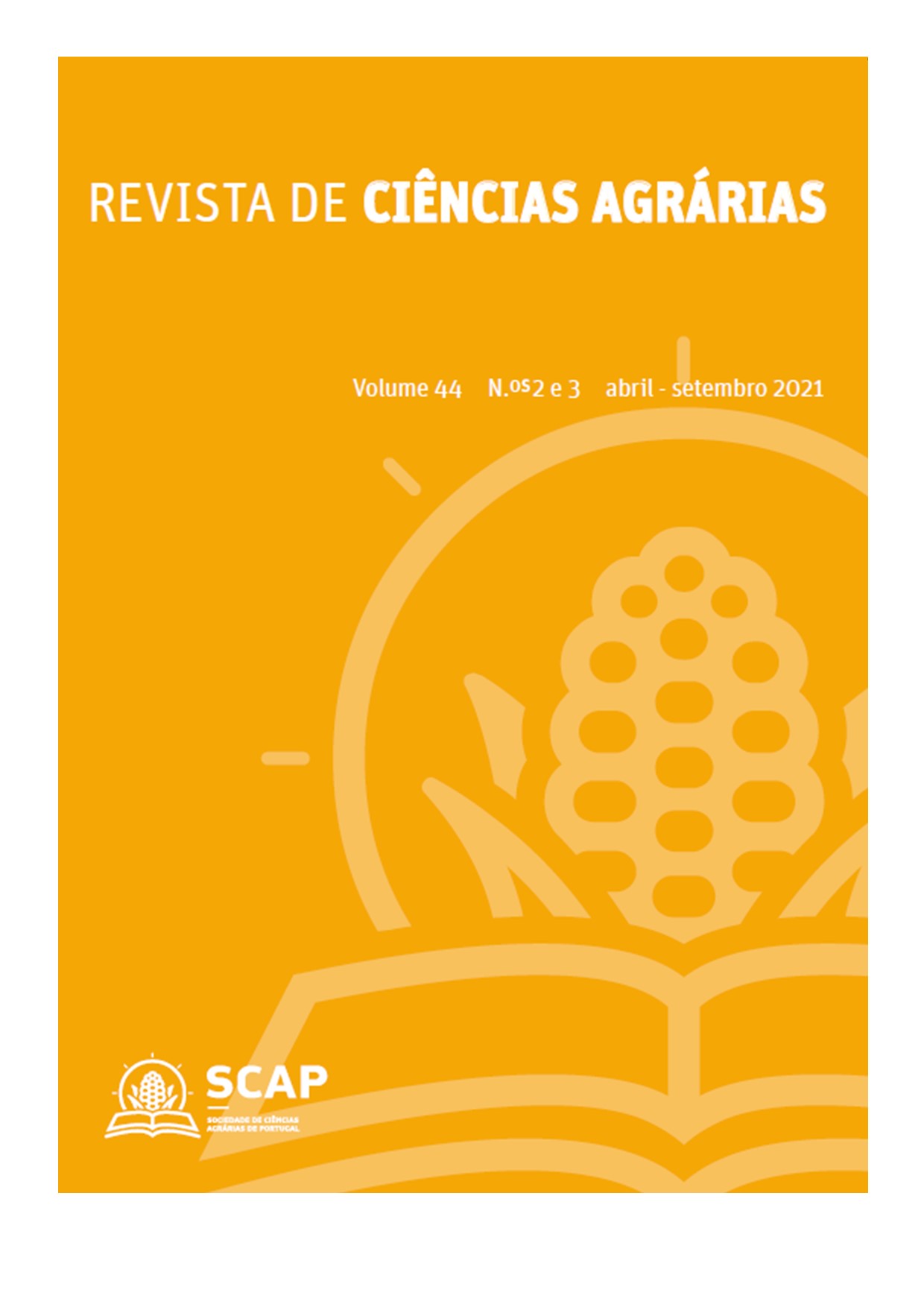Physiological behavior of Cojoba arborea (L.) Britton & Rose seeds submitted to drying
DOI:
https://doi.org/10.19084/rca.20646Abstract
The work evaluated the effect of drying Cojoba arborea seeds on the physiological behavior of seeds and their degree of recalcitrancy. The seeds were collected from matrices in the urban perimeter in Ji-Paraná, RO. In determining the degree of recalcitrance, germination tests were applied to seeds with different moisture content. The test was divided into two stages: drying process and germination test. The desiccation tolerance was determined by placing the seeds on a 5 mm mesh sieve in an air-conditioned environment. At the end of every five days, the water content was determined and the seeds were sown with vermiculite. With germination data, speed indexes and average germination time were calculated. The variables of percentage of germination, average time of germination and vigor were applied analysis of variance (ANOVA) followed by the Tukey test (p <0.05) to compare the means. The seeds of Cojoba arborea were dispersed with a high moisture content, 55.4%, and had compromised viability and vigor when desiccated, characterizing them as recalcitrant. The critical water content was from 23.69%, while the degree of lethal humidity was from 17.99%.
Downloads
Downloads
Published
Versions
- 2021-12-18 (3)
- 2021-12-18 (2)
- 2021-10-23 (1)


